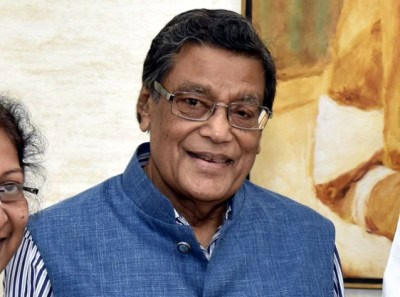New Delhi, Nov 26 : Attorney General K.K. Venugopal on Thursday batted for live streaming of court cases and video conferencing as a norm in future for functioning of courts, which should not stop even after the pandemic is over.
In his address at the Constitution Day celebrations organised by the Supreme Court, he said a crisis has developed due to Covid-19, which has impacted the normal functioning of three organs of the state.
“But the justice delivery system has not allowed itself to be beaten by this pandemic, rather swiftly adapted, in order to ensure doors of justice remains open for the country.
“I’ve been watching the Supreme Court of England & Wales – they have been also having virtual hearings. When we have live streaming, the whole world can watch the hearings. every single subordinate court and all High Courts may have live streamlining and video conferencing… this should not be stopped even after the pandemic is over; we should have it as a norm,” the AG said.
Venugopal said the Supreme Court has a superb record in taking up matters through video conferencing since the beginning of the lockdown. He added that the Gujarat High Court has also innovated as they started livestreaming the arguments in virtual hearing, and appreciated the decorum of lawyers who participated in these hearings.
As measure to address growing pendency, the AG, noting that today the top court is dealing with 400 categories of cases spanning rent control, matrimonial, land acquisition among others — which the apex court of other countries do not touch, he opined that the Supreme Court can start as a clean slate and restrict itself to constitutional matters and important national cases, and the rest can be handled by intermediate courts of appeal.
This doesn’t mean that cases end at High Court, but there can be intermediate courts of appeal, he clarified.
The AG suggested four intermediate courts of appeal with 15 judges each in the four corners of the country to ensure access to justice.
“If we have to wait for 20 years or 30 years to get justice, then it is the lower middle class which are the ones affected. The corporates don’t face issues (in the current system), they can very well afford to wait,” he said.
Disclaimer: This story is auto-generated from IANS service.

